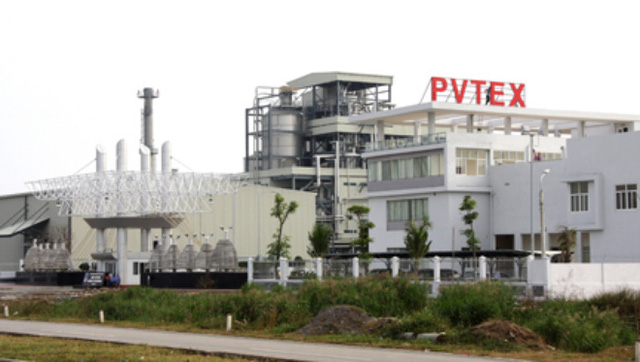Dinh Vu polyester plant teetering on brink of bankruptcy
 |
| Dinh Vu polyester plant is in desperate need to revise operation, which is currently blocked by a missing ministerial approval |
According to newswire Dantri, PetroVietnam has been seeking approval from the government and the Ministry of Industry and Trade (MoIT) for its plans to co-operate with foreign investors to revise Dinh Vu polyester plant.
During the wait, PetroVietnam proposed Fortrec Chemicals company from Singapore to extend the deadline for co-operation proposals in trading and manufacturing between the two parties (the initial deadline was July 31, 2017).
On August 8, Fortrec stated that it took too long to wait for the answer from Vietnamese authorities and requested PetroVietnam to submit its proposal before the authorities issue approval.
Earlier in August 2016, MoIT urged PetroVietnam to accelerate the negotiation process with the Singaporean partner to reach a compromise and restart Dinh Vu polyester plant.
At the time, Fortrec Chemicals said that if the plant’s machines operate smoothly and the plant manufactures a product volume meeting the designed capacity, Fortrec would supply material for the test operation period, while simultaneously agreeing to sign a two-year co-operation contract with PVTex.
Accordingly, Fortrec would be in charge of selling products at competitive prices. PetroVietnam submitted this plans to the government and MoIT for approval. The Singaporean partner said that the company expected to get Vietnamese authorities’ approval by July 31, 2017.
However, to date, the Vietnamese authorities have yet to reply to PetroVietnam’s plans.
Along with Fortrec, PetroVietnam and PVTex organised an online meeting with Reliance Industry Company from India to discuss co-operation plans. Accordingly, PetroVietnam and PVTex proposed the Indian partner to supply materials and sell products, among others. Especially, PetroVietnam intends to invite Reliance Industry Company to buy PVTex’s stakes.
A representative of PetroVietnam said that the group sent a document to invite Reliance Industry Company to take part in an official working session at the end of August.
In early August, PetroVietnam held a meeting with Vinatex to discuss a fibre consumption solution for the plant.
Vinatex chairman Tran Quang Nghi said affirmed that Vinatex would increase the volume of polyester fibre products bought from the plant to 100 per cent from the current level, or at least by 50 per cent according to its past commitments, if the plant ensures quality and stability and fulfils commitments on payment and delivery as in 2014 and 2015.
Besides, Vinatex and Vietnam Textile and Garment Institute will continue to support the plant to control the quality of its products and design units to test the fibre at the weaving and dyeing stages.
PetroVietnam has hired a consultancy firm to calculate the plant’s assets so that PVTex can transfer stakes to partners. In case none of the plans to restart the plant come true, PVTex will declare bankruptcy.
Dinh Vu polyster plant came in to commercial operation in May 2014 with a capacity of 236 tonnes of polyester fibre and yarn per day, equalling 48 per cent of its designed capacity. However, the factory had to suspend its operations numerous times due to unsold products piling up.
According to a report published by PetroVietnam, as of June 2016, PVTex incurred a cumulative loss of VND3.008 trillion ($135.4 million). In 2015 alone, the figure was VND1.2 trillion ($53.8 million), up VND120 billion ($5.38 million) on-year. PVTex’s poor financial standing made it impossible to pay off its total bank debts of $221.3 million, including $70.7 million in short-term loans.
Inspectors found signs of “deliberate contravention of state regulations” and “irresponsibility” in approving the project, selecting contractors, as well as purchasing equipment, which resulted in losses and wasting investment capital.
What the stars mean:
★ Poor ★ ★ Promising ★★★ Good ★★★★ Very good ★★★★★ Exceptional
Latest News
More News
- Kurz Vietnam expands Gia Lai factory (February 27, 2026 | 16:37)
- SK Innovation-led consortium wins $2.3 billion LNG project in Nghe An (February 25, 2026 | 07:56)
- THACO opens $70 million manufacturing complex in Danang (February 25, 2026 | 07:54)
- Phu Quoc International Airport expansion approved to meet rising demand (February 24, 2026 | 10:00)
- Bac Giang International Logistics Centre faces land clearance barrier (February 24, 2026 | 08:00)
- Bright prospects abound in European investment (February 19, 2026 | 20:27)
- Internal strengths attest to commitment to progress (February 19, 2026 | 20:13)
- Vietnam, New Zealand seek level-up in ties (February 19, 2026 | 18:06)
- Untapped potential in relations with Indonesia (February 19, 2026 | 17:56)
- German strengths match Vietnamese aspirations (February 19, 2026 | 17:40)
















 Mobile Version
Mobile Version